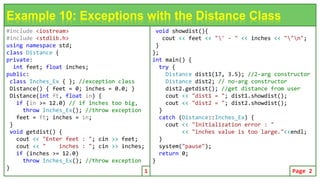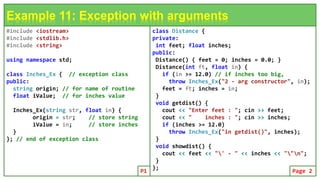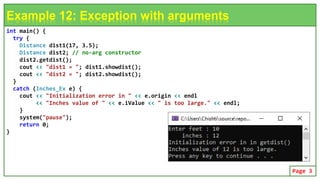The document explains exception handling in C++, detailing the use of keywords 'try', 'throw', and 'catch' to manage runtime errors. It provides multiple examples of throwing and catching exceptions, including custom exceptions and how to handle multiple exception types. It also explains nested try/catch blocks and the importance of properly catching exceptions to prevent program termination.
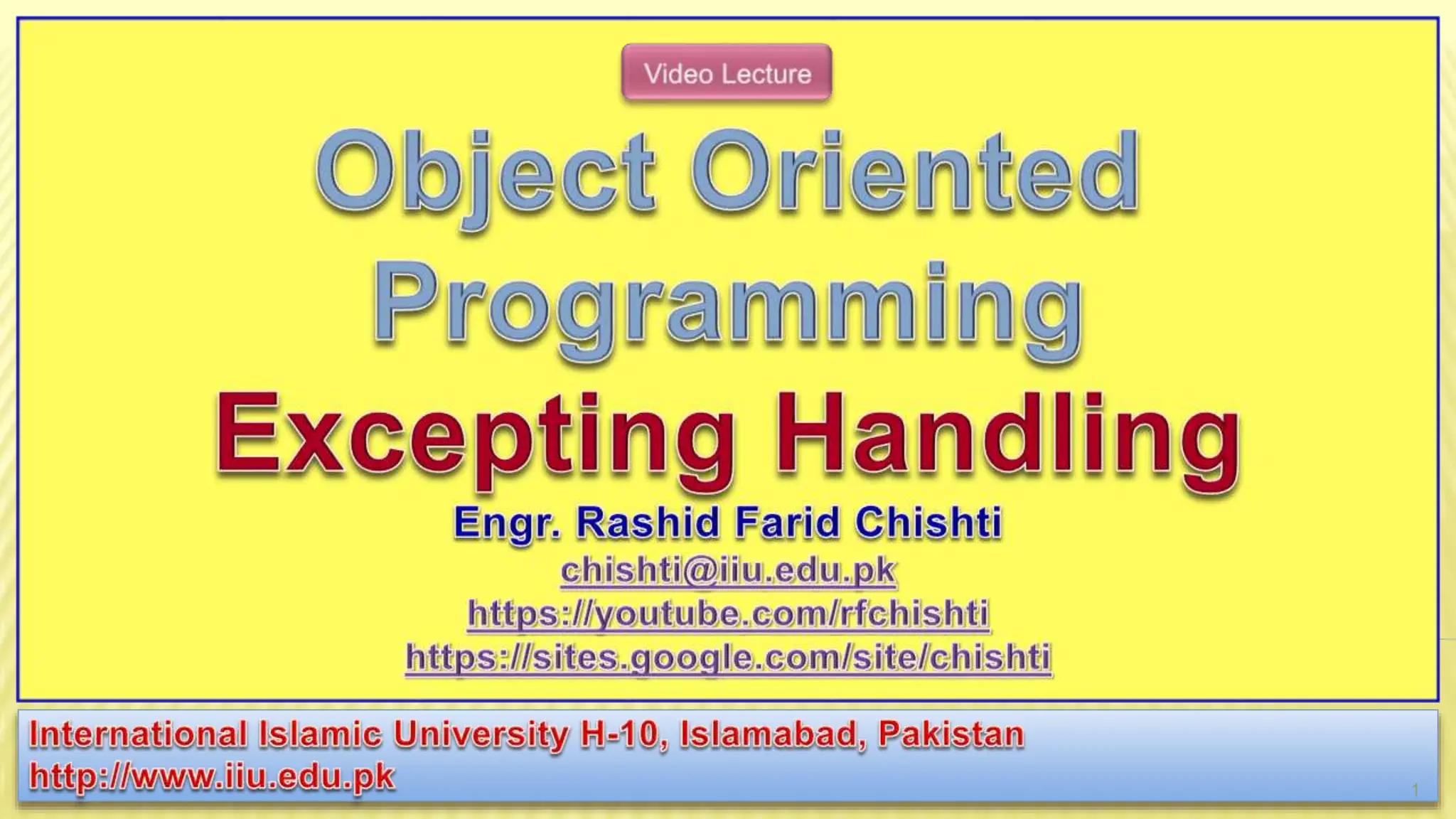

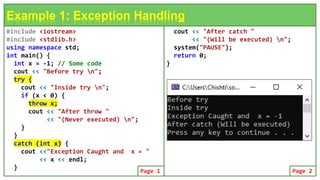

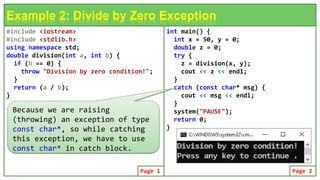
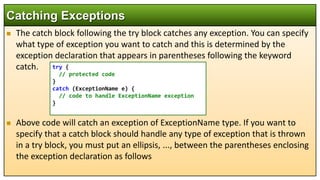
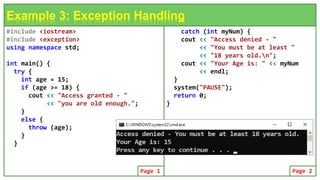
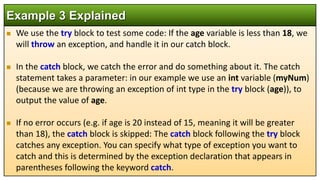
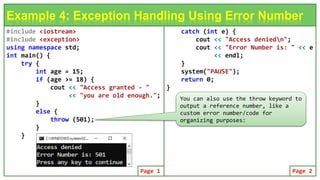
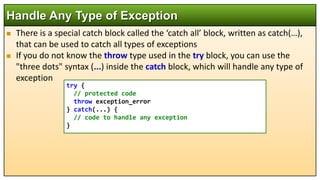
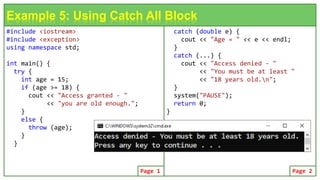
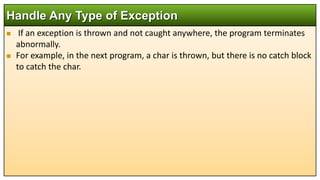
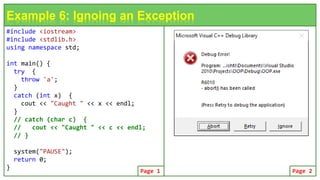
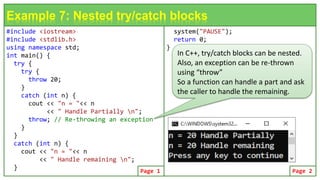
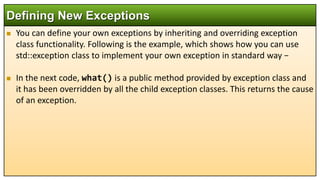

![#include <iostream>
using namespace std;
const int MAX = 3; // stack size
class Stack {
private:
int st[MAX]; int top;
public:
class Exception_Full { };
class Exception_Empty { };
Stack() { top = -1; }
void push(int var) {
if (top >= MAX - 1) //if stack full,
throw Exception_Full();
st[++top] = var;
}
int pop() { // take number off stack
if (top < 0) //if stack empty,
throw Exception_Empty();
return st[top--];
}
Example 9: Using Exception Class
};
int main() {
Stack s1;
try {
s1.push(11); s1.push(22);
s1.push(33); // s1.push(44);
cout << s1.pop() << endl;
cout << s1.pop() << endl;
cout << s1.pop() << endl;
cout << s1.pop() << endl;
}
catch (Stack::Exception_Full) {
cout << "Exception: Stack Full" << endl;
}
catch (Stack::Exception_Empty) {
cout << "Exception: Stack Empty" << endl;
}
cout << "I am outside of try / catch "
<< endl; return 0;
}
Page 1 Page 2](https://image.slidesharecdn.com/cexceptionhandling-240518103700-3ec97be0/85/Object-Oriented-Programming-Using-C-C-Exception-Handling-pptx-17-320.jpg)
